Kahlil Gibran
Appearance

Gibran Khalil Gibran (6 January 1883 – 10 April 1931), usually referred to in English as Kahlil Gibran, was a Lebanese-American writer, poet and visual artist.

- See also:
Quotes
[edit]- Vain are the beliefs and teachings that make man miserable, and false is the goodness that leads him into sorrow and despair, for it is man's purpose to be happy on this earth and lead the way to felicity and preach its gospel wherever he goes. He who does not see the kingdom of heaven in this life will never see it in the coming life. We came not into this life by exile, but we came as innocent creatures of God, to learn how to worship the holy and eternal spirit and seek the hidden secrets within ourselves from the beauty of life. This is the truth which I have learned from the teachings of the Nazarene.
- Khalil in Spirits Rebellious (1908) "Khalil The Heretic" Part 3
- Let us disperse from our aloofness and serve the weak who made us strong, and cleanse the country in which we live. Let us teach this miserable nation to smile and rejoice with heaven's bounty and glory of life and freedom.
- Khalil in Spirits Rebellious (1908) "Khalil The Heretic" Part 3
- I believe that you can say to Abraham Lincoln, the blessed, "Jesus of Nazareth touched your lips when you spoke, and guided your hand when you wrote; and I shall uphold all that you have said and all that you have written."
I believe that you can say to Emerson and Whitman and James, "In my veins runs the blood of the poets and wise men of old, and it is my desire to come to you and receive, but I shall not come with empty hands."
I believe that even as your fathers came to this land to produce riches, you were born here to produce riches by intelligence, by labor.
I believe that it is in you to be good citizens.- "I Believe In You (To The Americans Of Lebanese Origin)" in This Man from Lebanon: A Study of Kahlil Gibran (1945) by Barbara Young, p. 136
- The creator gives no heed to the critic unless he becomes a barren inventor.
- Spiritual Sayings of Kahlil Gibran (1962) as translated by Anthony R. Ferris
- My enemy said to me, "Love your enemy." And I obeyed him and loved myself.
- Spiritual Sayings of Kahlil Gibran
- Progress lies not in enhancing what is, but in advancing toward what will be.
- A Handful of Sand on the Shore, as quoted in Alterquest: the Alternative Quest for Answers (2006) by Karen Fiala, p. 127
- The tears that you spill, the sorrowful, are sweeter than the laughter of snobs and the guffaws of scoffers.
- A Handful of Sand on the Shore
- Man struggles to find life outside himself, unaware that the life he is seeking is within him.”
- Kahlil Gibran, The Awakened Soul ISBN-10: 1864760818 (January 2001)
- To understand the heart and mind of a person, look not at what he has already achieved, but what he aspires to.
- As quoted in Become a Conscious Creator: A Return to Self-Empowerment (2007) by Lisa Ford, p. 44
The Madman (1918)
[edit]

- For the first time the sun kissed my own naked face and my soul was inflamed with love for the sun, and I wanted my masks no more. And as if in a trance I cried, "Blessed, blessed are the thieves who stole my masks."
Thus I became a madman.
And I have found both freedom and safety in my madness; the freedom of loneliness and the safety from being understood, for those who understand us enslave something in us.
But let me not be too proud of my safety. Even a Thief in a jail is safe from another thief.- Introduction
- My friend, I am not what I seem. Seeming is but a garment I wear — a care-woven garment that protects me from thy questionings and thee from my negligence.
The "I" in me, my friend, dwells in the house of silence, and therein it shall remain for ever more, unperceived, unapproachable.
I would not have thee believe in what I say nor trust in what I do — for my words are naught but thy own thoughts in sound and my deeds thy own hopes in action.- My Friend
- I know faces, because I look through the fabric my own eye weaves, and behold the reality beneath.
- Faces
- I go — as others already crucified have gone. And think not we are weary of crucifixion. For we must be crucified by larger and yet larger men, between greater earths and greater heavens.
- Crucified
- Once there ruled in the distant city of Wirani a king who was both mighty and wise. And he was feared for his might and loved for his wisdom. Now, in the heart of that city was a well, whose water was cool and crystalline, from which all the inhabitants drank, even the king and his courtiers; for there was no other well. One night when all were asleep, a witch entered the city, and poured seven drops of strange liquid into the well, and said, “From this hour he who drinks this water shall become mad.” Next morning all the inhabitants, save the king and his lord chamberlain, drank from the well and became mad, even as the witch had foretold. And during that day the people in the narrow streets and in the market places did naught but whisper to one another, “The king is mad. Our king and his lord chamberlain have lost their reason. Surely we cannot be ruled by a mad king. We must dethrone him.” That evening the king ordered a golden goblet to be filled from the well. And when it was brought to him he drank deeply, and gave it to his lord chamberlain to drink. And there was great rejoicing in that distant city of Wirani, because its king and its lord chamberlain had regained their reason.
The Forerunner (1920)
[edit]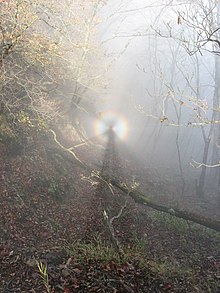
- You are your own forerunner, and the towers you have builded are but the foundation of your giant-self. And that self too shall be a foundation.
And I too am my own forerunner, for the long shadow stretching before me at sunrise shall gather under my feet at the noon hour. Yet another sunrise shall lay another shadow before me, and that also shall be gathered at another noon.
Always have we been our own forerunners, and always shall we be. And all that we have gathered and shall gather shall be but seeds for fields yet unploughed. We are the fields and the ploughmen, the gatherers and the gathered.
- O love, whose lordly hand
Has bridled my desires,
And raised my hunger and my thirst
To dignity and pride,
Let not the strong in me and the constant
Eat the bread or drink the wine
That tempt my weaker self.
Let me rather starve,
And let my heart parch with thirst,
And let me die and perish,
Ere I stretch my hand
To a cup you did not fill,
Or a bowl you did not bless.- "Love"

The Prophet (1923)
[edit]- These are just a few samples, for more quotes from this work see: The Prophet
- Love gives naught but itself and takes naught but from itself. Love possesses not nor would it be possessed; For love is sufficient unto love.
- Say not, "I have found the path of the soul." Say rather, "I have found the soul walking upon my path." For the soul walks upon all paths. The soul walks not upon a line, neither does it grow like a reed. The soul unfolds itself, like a lotus of countless petals.
- Your pain is the breaking of the shell that encloses your understanding. Even as the stone of the fruit must break, that its heart may stand in the sun, so must you know pain.
- Love knows not its own depth until the hour of separation.
- For in truth it is life that gives unto life-while you, who deem yourself a giver, are but a witness.
Sand and Foam (1926)
[edit]
- Half of what I say is meaningless, but I say it so that the other half may reach you.
- This line was later paraphrased by John Lennon, in his song "Julia", on The Beatles (1968): "Half of what I say is meaningless, but I say it just to reach you, Julia."
- A sense of humour is a sense of proportion.
- The reality of the other person is not in what he reveals to you, but in what he cannot reveal to you. Therefore, if you would understand him, listen not to what he says but rather to what he does not say.
- My loneliness was born when men praised my talkative faults and blamed my silent virtues.
- When Life does not find a singer to sing her heart she produces a philosopher to speak her mind.
- A truth is to be known always, to be uttered sometimes.
- If you sing of beauty though alone in the heart of the desert you will have an audience.
- Solitude is a silent storm that breaks down all our dead branches; Yet it sends our living roots deeper into the living heart of the living earth.
- Strange that creatures without backbones have the hardest shells.
- Friendship is always a sweet responsibility, never an opportunity.
- There must be something strangely sacred about salt. It is in our tears and in the sea
- I would be the least among men with dreams and the desire to fulfill them, rather than the greatest with no dreams and no desires.
Jesus, The Son of Man (1928)
[edit]

- "My face and your faces shall not be masked; our hand shall hold neither sword nor sceptre, and our subjects shall love us in peace and shall not be in fear of us."
Thus spoke Jesus, and unto all the kingdoms of the earth I was blinded, and unto all the cities of walls and towers; and it was in my heart to follow the Master to His kingdom.- James The Son Of Zebedee: On The Kingdoms Of The World
- I was dead. I was a woman who had divorced her soul. I was living apart from this self which you now see. I belonged to all men, and to none. They called me harlot, and a woman possessed of seven devils. I was cursed, and I was envied.
But when His dawn-eyes looked into my eyes all the stars of my night faded away, and I became Miriam, only Miriam, a woman lost to the earth she had known, and finding herself in new places.- Mary Magdalen: On Meeting Jesus For The First Time

- He stood up and looked at me even as the seasons might look down upon the field, and He smiled. And He said again: "All men love you for themselves. I love you for yourself."
And then He walked away.
But no other man ever walked the way He walked. Was it a breath born in my garden that moved to the east? Or was it a storm that would shake all things to their foundations?
I knew not, but on that day the sunset of His eyes slew the dragon in me, and I became a woman, I became Miriam, Miriam of Mijdel.- Mary Magdalen: On Meeting Jesus For The First Time
- He knew the depth of beauty, He was for ever surprised by its peace and its majesty; and He stood before the earth as the first man had stood before the first day.
We whose senses have been dulled, we gaze in full daylight and yet we do not see. We would cup our ears, but we do not hear; and stretch forth our hands, but we do not touch. And though all the incense of Arabia is burned, we go our way and do not smell.- A Philosopher: On Wonder And Beauty
- In truth we gaze but do not see, and hearken but do not hear; we eat and drink but do not taste. And there lies the difference between Jesus of Nazareth and ourselves.
His senses were all continually made new, and the world to Him was always a new world.- A Philosopher: On Wonder And Beauty

- Many are the fools who say that Jesus stood in His own path and opposed Himself; that He knew not His own mind, and in the absence of that knowledge confounded Himself.
Many indeed are the owls who know no song unlike their own hooting.
You and I know the jugglers of words who would honor only a greater juggler, men who carry their heads in baskets to the market-place and sell them to the first bidder.
We know the pygmies who abuse the sky-man. And we know what the weed would say of the oak tree and the cedar.
I pity them that they cannot rise to the heights.- Nicodemus The Poet, The Youngest Of The Elders In The Sanhedrim: On Fools And Jugglers
- There are the men who say, "He preached tenderness and kindliness and filial love, yet He would not heed His mother and His brothers when they sought Him in the streets of Jerusalem."
They do not know that His mother and brothers in their loving fear would have had Him return to the bench of the carpenter, whereas He was opening our eyes to the dawn of a new day.
His mother and His brothers would have had Him live in the shadow of death, but He Himself was challenging death upon yonder hill that He might live in our sleepless memory.- Nicodemus The Poet, The Youngest Of The Elders In The Sanhedrim: On Fools And Jugglers
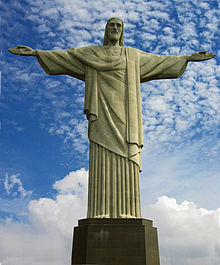
- Do you not remember me, Nicodemus, who believed in naught but the laws and decrees and was in continual subjection to observances?
And behold me now, a man who walks with life and laughs with the sun from the first moment it smiles upon the mountain until it yields itself to bed behind the hills.- Nicodemus The Poet, The Youngest Of The Elders In The Sanhedrim: On Fools And Jugglers
- Am I less man because I believe in a greater man?
The barriers of flesh and bone fell down when the Poet of Galilee spoke to me; and I was held by a spirit, and was lifted to the heights, and in midair my wings gathered the song of passion.
And when I dismounted from the wind and in the Sanhedrim my pinions were shorn, even then my ribs, my featherless wings, kept and guarded the song. And all the poverties of the lowlands cannot rob me of my treasure.
I have said enough. Let the deaf bury the humming of life in their dead ears. I am content with the sound of His lyre, which He held and struck while the hands of His body were nailed and bleeding.- Nicodemus The Poet, The Youngest Of The Elders In The Sanhedrim: On Fools And Jugglers
- He was gentle, like a man mindful of his own strength.
In my dreams I beheld the kings of the earth standing in awe in His presence.- Mary Magdalen: His Mouth Was Like the Heart of a Pomegranate

- I admired Him as a man rather than as a leader. He preached something beyond my liking, perhaps beyond my reason. And I would have no man preach to me.
I was taken by His voice and His gestures, not by the substance of His speech. He charmed me but never convinced me; for He was too vague, too distant and obscure to reach my mind.
I have known other men like Him. They are never constant nor are they consistent. It is with eloquence not with principles that they hold your ear and your passing thought, but never the core of your heart.- Manasseh: On the Speech and Gesture of Jesus
- In every aspect of the day Jesus was aware of the Father. He beheld Him in the clouds and in the shadows of the clouds that pass over the earth. He saw the Father's face reflected in the quiet pools, and the faint print of His feet upon the sand; and He often closed His eyes to gaze into the Holy Eyes.
The night spoke to Him with the voice of the Father, and in solitude He heard the angel of the Lord calling to Him. And when He stilled Himself to sleep He heard the whispering of the heavens in His dreams.
He was often happy with us, and He would call us brothers.
Behold, He who was the first Word called us brothers, though we were but syllables uttered yesterday.- John The Beloved Disciple In His Old Age: On Jesus The Word
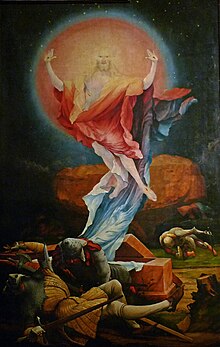
- You ask why I call Him the first Word.
Listen, and I will answer:
In the beginning God moved in space, and out of His measureless stirring the earth was born and the seasons thereof.
Then God moved again, and life streamed forth, and the longing of life sought the height and the depth and would have more of itself.
Then God spoke thus, and His words were man, and man was a spirit begotten by God's Spirit.
And when God spoke thus, the Christ was His first Word and that Word was perfect; and when Jesus of Nazareth came to the world the first Word was uttered unto us and the sound was made flesh and blood.- John The Beloved Disciple In His Old Age: On Jesus The Word

- We are all sons and daughters of the Most High, but the Anointed One was His first-born, who dwelt in the body of Jesus of Nazareth, and He walked among us and we beheld Him.
All this I say that you may understand not only in the mind but rather in the spirit. The mind weighs and measures but it is the spirit that reaches the heart of life and embraces the secret; and the seed of the spirit is deathless.
The wind may blow and then cease, and the sea shall swell and then weary, but the heart of life is a sphere quiet and serene, and the star that shines therein is fixed for evermore.- John The Beloved Disciple In His Old Age: On Jesus The Word
- I have pondered long, and I know now that only the pure of heart forgive the thirst that leads to dead waters.
And only the sure of foot can give a hand to him who stumbles.- Andrew: On Prostitutes
- Jesus loved me and I knew not why.
And I loved Him because He quickened my spirit to heights beyond my stature, and to depths beyond my sounding.
Love is a sacred mystery.
To those who love, it remains forever wordless;
But to those who do not love, it may be but a heartless jest.- John At Patmos: Jesus The Gracious
- Love is a gracious host to his guests though to the unbidden his house is a mirage and a mockery.
Now you would have me explain the miracles of Jesus.
We are all the miraculous gesture of the moment; our Lord and Master was the centre of that moment.
Yet it was not in His desire that His gestures be known.- John At Patmos: Jesus The Gracious

- I would tell you more of Him, but how shall I?
When love becomes vast love becomes wordless.
And when memory is overladen it seeks the silent deep.- John At Patmos: Jesus The Gracious
- I too died. But in the depth of my oblivion I heard Him speak and say, "Father forgive them, for they know not what they do."
And His voice sought my drowned spirit and I was brought back to the shore.
And I opened my eyes and I saw His white body hanging against the cloud, and His words that I had heard took the shape within me and became a new man. And I sorrowed no more.
Who would sorrow for a sea that is unveiling its face, or for a mountain that laughs in the sun?
Was it ever in the heart of man, when that heart was pierced, to say such words?
What other judge of men has released His judges? And did ever love challenge hate with power more certain of itself?
Was ever such a trumpet heard 'twixt heaven and earth?
Was it known before that the murdered had compassion on his murderers? Or that the meteor stayed his footsteps for the mole?
The seasons shall tire and the years grow old, ere they exhaust these words: "Father forgive them, for they know not what they do."- Philip: And When He Died All Mankind Died
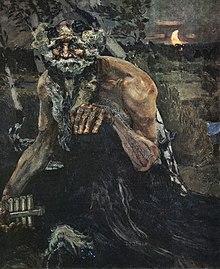
- In a dream I saw Jesus and My God Pan sitting together in the heart of the forest.
They laughed at each other's speech, with the brook that ran near them, and the laughter of Jesus was the merrier. And they conversed long.- Sarkis an old Greek Shepherd, called the madman: Jesus and Pan

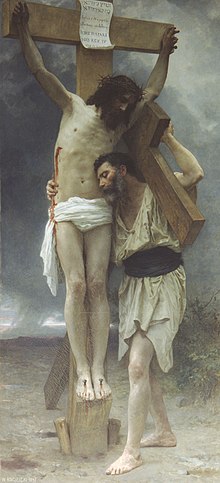
- "And now let us play our reeds together."
And they played together.
And their music smote heaven and earth, and a terror struck all living things.
I heard the bellow of beasts and the hunger of the forest. And I heard the cry of lonely men, and the plaint of those who long for what they know not.
I heard the sighing of the maiden for her lover, and the panting of the luckless hunter for his prey.
And then there came peace into their music, and the heavens and the earth sang together.
All this I saw in my dream, and all this I heard.- Sarkis an old Greek Shepherd, called the madman: Jesus and Pan
- Once again I say that with death Jesus conquered death, and rose from the grave a spirit and a power. And He walked in our solitude and visited the gardens of our passion.
He lies not there in that cleft rock behind the stone.
We who love Him beheld Him with these our eyes which He made to see; and we touched Him with these our hands which He taught to reach forth.- Mary Magdalen (Thirty years later): On the Resurrection of the Spirit
- You hate Jesus because someone from the North Country said He was the Son of God. But you hate one another because each of you deems himself too great to be the brother of the next man.
- Mary Magdalen (Thirty years later): On the Resurrection of the Spirit
- You know not that the earth was given in marriage to the sun, and that earth it is who sends us forth to the mountain and the desert.
There is a gulf that yawns between those who love Him and those who hate Him, between those who believe and those who do not believe.
But when the years have bridged that gulf you shall know that He who lived in us is deathless, that He was the Son of God even as we are the children of God; that He was born of a virgin even as we are born of the husbandless earth.- Mary Magdalen (Thirty years later): On the Resurrection of the Spirit
- Master, master singer,
Master of words unspoken,
Seven times was I born, and seven times have I died
Since your last hasty visit and our brief welcome.
And behold I live again,
Remembering a day and a night among the hills,
When your tide lifted us up.- A Man From Lebanon: Nineteen Centuries Afterward

The first man who opened His eyes and gazed at the sun
With eyelids unquivering.
Nay, they do not know Him, and they would not be like Him.
- Men would bless you or curse you;
The curse, a protest against failure,
The blessing, a hymn of the hunter
Who comes back from the hills
With provision for his mate.- A Man From Lebanon: Nineteen Centuries Afterward
- Master, Master Poet,
Master of words sung and spoken,
They have builded temples to house your name,
And upon every height they have raised your cross,
A sign and a symbol to guide their wayward feet,
But not unto your joy.
Your joy is a hill beyond their vision,
And it does not comfort them.
They would honour the man unknown to them.
And what consolation is there in a man like themselves, a man whose
kindliness is like their own kindliness,
A god whose love is like their own love,
And whose mercy is in their own mercy?
They honour not the man, the living man,
The first man who opened His eyes and gazed at the sun
With eyelids unquivering.
Nay, they do not know Him, and they would not be like Him.- A Man From Lebanon: Nineteen Centuries Afterward

The heart of the world quivers with the throbbing of your heart,
But it burns not with your song.
- You laughed for the marrow in their bones that was not yet ready for laughter;
And you wept for their eyes that yet were dry.
Your voice fathered their thoughts and their understanding.
Your voice mothered their words and their breath.- A Man From Lebanon: Nineteen Centuries Afterward
- Here and there, betwixt the cradle and the coffin, I meet your silent brothers,
The free men, unshackled,
Sons of your mother earth and space.
They are like the birds of the sky,
And like the lilies of the field.
They live your life and think your thoughts,
And they echo your song.
But they are empty-handed,
And they are not crucified with the great crucifixion,
And therein is their pain.
The world crucifies them every day,
But only in little ways.
The sky is not shaken,
And the earth travails not with her dead.- A Man From Lebanon: Nineteen Centuries Afterward

A man too weak and infirm to be God,
A God too much man to call forth adoration.

You do still tread this day;
Nor bows nor spears shall stay your steps.
You walk through all our arrows.
- Master, Master Poet,
Master of our silent desires,
The heart of the world quivers with the throbbing of your heart,
But it burns not with your song.
The world sits listening to your voice in tranquil delight,
But it rises not from its seat
To scale the ridges of your hills.
Man would dream your dream but he would not wake to your dawn
Which is his greater dream.
He would see with your vision,
But he would not drag his heavy feet to your throne.
Yet many have been enthroned in your name
And mitred with your power,
And have turned your golden visit
Into crowns for their head and sceptres for their hand.- A Man From Lebanon: Nineteen Centuries Afterward
- Master, Master of Light,
Whose eye dwells in the seeking fingers of the blind,
You are still despised and mocked,
A man too weak and infirm to be God,
A God too much man to call forth adoration.- A Man From Lebanon: Nineteen Centuries Afterward
- But Master, Sky-heart, Knight of our fairer dream,
You do still tread this day;
Nor bows nor spears shall stay your steps.
You walk through all our arrows.- A Man From Lebanon: Nineteen Centuries Afterward
- Poet, Singer, Great Heart,
May our God bless your name,
And the womb that held you, and the breasts that gave you milk.
And may God forgive us all.- A Man From Lebanon: Nineteen Centuries Afterward
The Vision: Reflections on the Way of the Soul (1994)
[edit]- Edited by Robin H. Waterfield, translated by Juan R. I. Cole

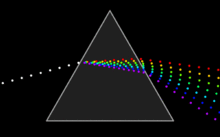

- I have existed from all eternity and, behold, I am here; and I shall exist till the end of time, for my being has no end.
I soared into limitless space and took wing in the imaginal world, approaching the circle of exalted light; and here I am now, mired in matter.
I listened to the teachings of Confucius, imbibed the wisdom of Brahma, and sat beside Buddha beneath the tree of insight. And now I am here, wrestling with ignorance and unbelief. I was on Sinai when Yahweh shed his effulgence on Moses; at the River Jordan I witnessed the miracles of the Nazarene; and in Medina I heard the words of the Messenger to the Arabs. And here I am now, a captive of confusion.- The Anthem of Humanity
- Life without Liberty is like a body without spirit. Liberty without thought is like a disturbed spirit … Life, liberty, and thought — three persons in one substance, eternal, never-ending, and unceasing.
- The Vision
- Love and what generates it. Rebellion and what creates it. Liberty and what nourishes it. Three manifestations of God. And God is the conscience of the rational world.
- The Vision
- How amazing time is, and how amazing we are. Time has been transformed, and we have changed; it has advanced and set us in motion; it has unveiled its face, inspiring us with bewilderment and exhilaration.
Yesterday we complained of time and feared it, but today we love and embrace it. Indeed, we have begun to perceive its purposes and characteristics, and to comprehend its secrets and enigmas.- Children of Gods, Scions of Apes
- Yesterday we obeyed kings and bent our necks before emperors. But today we kneel only to truth, follow only beauty, and obey only love.
- Children of Gods, Scions of Apes
- All that you see was and is for your sake. The numerous books, uncanny markings, and beautiful thoughts are the ghosts of souls who preceded you. The speech they weave is a link between you and your human siblings. The consequences that cause sorrow and rapture are the seeds that the past has sown in the field of the soul, and by which the future shall profit.
- My Soul gave me good counsel, teaching me to love what the people abhor and to show good will toward the one they hate. It showed me that Love is a property not of the lover but of the beloved. Before my Soul taught me, Love was for me a delicate thread stretched between two adjacent pegs, but now it has been transformed into a halo; its first is its last, and its last is its first. It encompasses every being, slowly expanding to embrace all that ever will be.
- My yearning is my cup, my burning thirst is my drink, and my solitude is my intoxication; I do not and shall not quench my thirst. But in this burning that is never extinguished is a joy that never wanes.
- My Soul gave me good counsel, teaching me to touch what has never taken corporeal form or crystallized. It made me understand that touching something is half the task of comprehending it, and that what we grasp therein is part of what we desire from it.

- My Soul gave me good counsel, teaching me not to measure time by saying, "It was yesterday, and will be tomorrow." Before my Soul taught me, I imagined the past as an era not to be met with, and the future as an age that I would never witness. But now I know that in the brief moment of the present, all time exists, including everything that is in time — all that is eagerly anticipated, achieved, or realized.
My Soul gave me good counsel, teaching me not to define a place by saying 'here' or 'there'. Before my Soul taught me, I thought that when I was in any place on the earth I was remote from every other spot. But now I have learned that the place where I subsist is all places, and the space I occupy is all intervals.
- My Soul gave me good counsel, teaching me never to delight in praise or to be distressed by reproach. Before my Soul taught me, I doubted the value of my accomplishments until the passing days sent someone who would extol or disparage them. But now I know that trees blossom in the spring and give their fruits in the summer without any desire for accolades. And they scatter their leaves abroad in the fall and denude themselves in the winter without fear of reproof.
- My Soul gave me good counsel, teaching me and demonstrating to me that I am not exalted over the panhandler nor less than the mighty. Before my Soul taught me, I thought people consisted of two types: the weak, whom I pitied and disregarded, and the powerful, whom I followed or against I rebelled. Now, I have discovered that I was formed as one individual from the same substance from which all human beings were created. I am made up of the same elements as they are, and my pattern is theirs. My struggles are theirs, and my path is theirs.
- My Soul gave me good counsel, teaching me that the lamp which I carry does not belong to me, and the song that I sing was not generated from within me. Even if I walk with light, I am not the light; and if I am a taut-stringed lute, I am not the lute player.
Your Thought and Mine
[edit]

- My thought is a tender leaf that sways in every direction and finds pleasure in its swaying. Your thought is an ancient dogma that cannot change you nor can you change it. My thought is new, and it tests me and I test it morn and eve.
You have your thought and I have mine.
- Your thought advocates fame and show. Mine counsels me and implores me to cast aside notoriety and treat it like a grain of sand cast upon the shore of eternity. Your thought instills in your heart arrogance and superiority. Mine plants within me love for peace and the desire for independence. Your thought begets dreams of palaces with furniture of sandalwood studded with jewels, and beds made of twisted silk threads. My thought speaks softly in my ears, "Be clean in body and spirit even if you have nowhere to lay your head." Your thought makes you aspire to titles and offices. Mine exhorts me to humble service.
- Your thought describes laws, courts, judges, punishments. Mine explains that when man makes a law, he either violates it or obeys it. If there is a basic law, we are all one before it. He who disdains the mean is himself mean. He who vaunts his scorn of the sinful vaunts his disdain of all humanity.
- Your thought advocates Judaism, Brahmanism, Buddhism, Christianity, and Islam. In my thought there is only one universal religion, whose varied paths are but the fingers of the loving hand of the Supreme Being. In your thought there are the rich, the poor, and the beggared. My thought holds that there are no riches but life; that we are all beggars, and no benefactor exists save life herself.
- Your thought sees power in armies, cannons, battleships, submarines, aeroplanes, and poison gas. But mine asserts that power lies in reason, resolution, and truth. No matter how long the tyrant endures, he will be the loser at the end. Your thought differentiates between pragmatist and idealist, between the part and the whole, between the mystic and materialist. Mine realizes that life is one and its weights, measures and tables do not coincide with your weights, measures and tables. He whom you suppose an idealist may be a practical man.
Misattributed
[edit]- Out of suffering have emerged the strongest souls; the most massive characters are seared with scars.
- Edwin Hubbell Chapin, as quoted in Dictionary of Burning Words of Brilliant Writers (1895) by Josiah Hotchkiss Gilbert
- And God said, Love your enemy, & I obeyed Him & loved myself.
- Paraphrasing of Gibran's quote "My enemy said to me, 'Love your enemy.' And I obeyed him and loved myself.", misattributed on these websites: GaiamLife (blog) & Quote Corner - Khalil Gibran quotes Part 1
- Travel and tell no one. Have a true love story and tell no one. Live happily and tell no one. People ruin beautiful things.
- Not attributable to any source; popularized in August 2016
Quotes about Gibran
[edit]
- For Khalil Gibran no single religious tradition revealed the whole truth about life so he wove together insights from Eastern Christianity, Islam, Buddhism, American Transcendentalism, and the folklore of his native Lebanon to create his own universal "Anthem of Humanity" … he attacks narrow-mindedness, clerical hypocrisy and political injustice, and issues a declaration of faith in life itself.
- Editorial synopsis on the back jacket of the Penguin edition of The Vision: Reflections on the Way of the Soul (1994) as translated by Juan R. I. Cole
- In truth, The Prophet is a work of such universal appeal that there is little to be gained from speculating on the identity of persons or places represented in it. For Gibran's purpose was a lofty one, and his belief in the 'unity of being', which led him to call for universal fellowship and the unification of the human race, is a message which retains its potency today as do the messages of all great poets. Inspired by his experiences in a country far from the land of his origins, he strove to resolve cultural and human conflict, in the process developing a unique genre of writing, and transcending the barriers of East and West as few have done before or since. He became not only Gibran of Lebanon, but Gibran of America, indeed Gibran the voice of global consciousness: a voice which increasingly demands to be heard in the continuing Age of Anxiety.
- Dr. Suheil Bashrui, editor of Kahlil Gibran: A Spiritual Treasury, as quoted in "Khalil Gibran (1883-1931) - A Voice of Consciousness" by Manbir Singh Chowdhary in SikhSpectrum.com Quarterly No.16 (May 2004)



